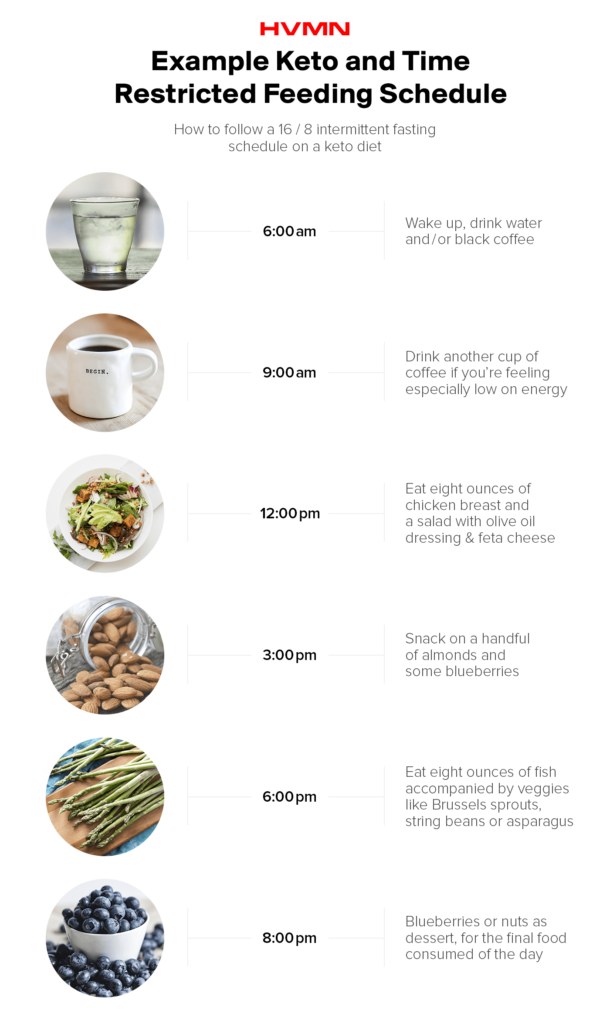Dr. Boz (Annette Bosworth, MD) presents intriguing insights on the contentious topic of seed oils and omega-6 fatty acids in her recent video. Drawing from her discussions with Bill Harris, a distinguished fatty acids researcher, she explores the complex relationship between these oils and various health outcomes. This article will summarize key points from Dr. Boz’s findings, the ongoing debates surrounding omega-6 and omega-3 fatty acids, and the implications of current research on dietary recommendations.
Throughout the article, a focus will be placed on how the understanding of omega-6’s role in health is evolving, backed by epidemiological studies and personal reflections from Dr. Boz. Moreover, it will highlight the importance of consulting healthcare professionals before making significant dietary changes, especially when navigating the transition to a ketogenic lifestyle. You will gain insights into the latest research and recommendations while considering the broader context of nutritional science.

Overview of Seed Oils and Omega-6
Definition of Seed Oils
Seed oils, often referred to as vegetable oils, are extracted from seeds of various plants. Common examples include soybean oil, sunflower oil, canola oil, and corn oil. These oils are popular in cooking and food production due to their high smoke points and neutral flavors. However, they are also rich in polyunsaturated fatty acids, particularly omega-6 fatty acids, which are under increasing scrutiny for their potential health impacts.
Introduction to Omega-6 Fatty Acids
Omega-6 fatty acids are a type of polyunsaturated fat essential for human health. They are crucial for various physiological functions, including cell membrane integrity and inflammatory responses. The most prevalent omega-6 fatty acid in the diet is linoleic acid, found predominantly in seed oils. While omega-6 fatty acids play necessary roles in the body, an imbalance—especially an excess relative to omega-3 fatty acids—may contribute to inflammatory conditions.
Historical Context of Omega-6 in Diets
Historically, omega-6 fatty acids were consumed in much lower ratios compared to omega-3 fatty acids. Traditional diets, which were more balanced, included sources of omega-3 from fish and certain plants. However, with the industrialization of food production and a shift towards processed foods, omega-6 intake has surged. This combination of high omega-6 and low omega-3 consumption has raised concerns about potential health risks, including obesity, heart disease, and inflammatory disorders.
Dr. Boz’s Perspective on Seed Oils
Summary of Dr. Boz’s Video Content
Dr. Annette Bosworth, also known as Dr. Boz, explores the impacts of seed oils and omega-6 fatty acids on health through her video content. In her discussions, she questions the prevailing criticisms of seed oils, especially their association with inflammation. Dr. Boz emphasizes the importance of examining the scientific evidence and encourages her audience to engage in educational discourse regarding dietary fats.
Personal Anecdotes and Experiences Shared
In her videos, Dr. Boz shares personal anecdotes regarding her journey in understanding the complexities of dietary fats. She recounts a moment of self-reflection where she questioned her previously held beliefs about seed oils. By collaborating with experts like Bill Harris, she seeks to deepen her understanding and provide viewers with a nuanced perspective on the topic.
Educational Emphasis Versus Medical Advice
It is crucial to note that Dr. Boz’s content is intended for educational purposes and is not a substitute for medical advice. While she shares her insights and opinions, she always encourages viewers to consult with their personal physicians for tailored health guidance. This distinction is vital, as the complexities of nutrition often require personalized approaches.

Discussion with Bill Harris
Introduction to Bill Harris and His Background
Bill Harris is a renowned researcher in the field of fatty acids with decades of experience. His work has significantly contributed to the understanding of omega-3 and omega-6 fatty acids and their effects on human health. Harris’s research has garnered high citation rates, placing him in the top echelon of experts in his domain, making him a sought-after voice in the ongoing debate about dietary fats.
Key Points from the Discussion
In discussions with Dr. Boz, Harris emphasizes the importance of omega-3 fatty acids while providing insights on omega-6 intake. He notes that while omega-6 fats are often vilified, they are still crucial in moderation. Together, they explore the historical context of dietary fats and call for a more balanced view rather than an outright rejection of seed oils.
Importance of Expert Consultation
During their dialogues, Harris underscores the necessity of consulting experts in the field for reliable information. Both he and Dr. Boz advocate for informed dietary choices based on sound research rather than anecdotal reports or popular media narratives. Encouraging individuals to seek scientific guidance rather than follow trends can lead to better health outcomes.
Research Impacts on Omega-3 and Omega-6
Harris’s Contributions to Fatty Acids Research
Bill Harris’s research contributions have profoundly influenced the understanding of fatty acids. He has conducted numerous studies that provide evidence for the health benefits of omega-3 fatty acids. His work on blood levels of omega-3 as predictive markers for cardiovascular health has been particularly influential, helping to shape public health recommendations and dietary guidelines.
Review of Significant Studies and Findings
Among the pivotal studies Harris discusses is one that linked blood omega-3 levels with a reduced risk of sudden cardiac death. This researching involved analyzing stored blood samples from participants over several years to conclude that higher omega-3 levels correlate with a significantly lower risk of fatal heart issues. Such findings highlight the importance of maintaining adequate omega-3 levels for cardiovascular health.
Implications of Research on Public Health Guidelines
The implications of Harris’s research extend into the formulation of public health guidelines. By establishing the positive correlations between omega-3 intake and disease reduction, policymakers and health practitioners can better educate consumers about beneficial dietary adjustments. The growing body of research serves as a cornerstone for developing recommendations surrounding fatty acid consumption.

Health Benefits of Omega-3 Fatty Acids
Sources of Omega-3 Fatty Acids
Omega-3 fatty acids are primarily found in fish oils, particularly from fatty fish like salmon, mackerel, and sardines. Additionally, plant-based sources such as flaxseeds, chia seeds, and walnuts provide alpha-linolenic acid (ALA), another type of omega-3. Including these sources in your diet is vital for maintaining optimal health.
Correlations with Disease Reduction
Research consistently shows that omega-3 fatty acids are associated with numerous health benefits. They have been linked to reduced inflammation, improved heart health, and better mental health outcomes. Regular consumption of omega-3-rich foods can support cardiovascular function, lower triglyceride levels, and reduce symptoms of depression and anxiety.
Longitudinal Studies Supporting Omega-3 Benefits
Longitudinal studies examining the effects of sustained omega-3 intake have found compelling evidence of their long-term health benefits. These studies illustrate that individuals with higher omega-3 levels tend to experience lower rates of chronic diseases, emphasizing the importance of incorporating these fatty acids into your diet strategy.
Role of Omega-6 in Modern Diets
Prevalence of Linoleic Acid in Diets
Linoleic acid, the primary omega-6 fatty acid, is abundant in modern diets largely due to the widespread use of seed oils in food processing and cooking. These oils are often incorporated into everyday products, increasing omega-6 intake far beyond the levels seen in traditional diets. This prevalence has sparked debates around their contribution to health issues.
Potential Health Benefits Associated with Omega-6
Despite negative perceptions, omega-6 fatty acids can offer health benefits when consumed in appropriate amounts. They are essential for various bodily functions, including skin health and hormonal balance. Additionally, some studies suggest that moderate intake may support cardiovascular health, particularly when balanced with omega-3 fatty acids.
Evaluating Scientific Studies on Omega-6 and Longevity
Research examining the impacts of omega-6 consumption on longevity has produced mixed results. Some studies indicate that higher omega-6 intake is associated with lower rates of certain diseases and may contribute to improved lifespan. It is crucial to evaluate these studies critically, as individual dietary contexts and overall nutrient balance significantly influence health outcomes.
Understanding Omega Ratios
Clarifying Omega-6 to Omega-3 Ratios
The ratio of omega-6 to omega-3 fatty acids is an important factor in determining a diet’s healthfulness. Current estimates suggest that the average Western diet consumes omega-6 fatty acids at a ratio significantly higher than omega-3s, often cited as 15:1 or greater. A more balanced ratio, ideally around 4:1, is recommended for optimal health.
Implications of Lowering Omega-6 Without Increasing Omega-3
Lowering omega-6 intake alone does not guarantee improved health if omega-3 consumption does not also increase. The body requires both types of fatty acids, and an imbalance can lead to adverse health effects. A comprehensive dietary approach that considers both omega-6 and omega-3 intake is essential for achieving better health outcomes.
Common Misconceptions About Omega Ratios
Misunderstandings regarding omega ratios often lead to the oversimplification of dietary fats. Some individuals may mistakenly believe that reducing omega-6 will automatically enhance health, neglecting the importance of simultaneously increasing omega-3 intake. Awareness of these nuances is crucial for making informed dietary choices.
Epidemiological Studies on Omega-6
Overview of the Framingham Heart Study
The Framingham Heart Study is one of the most extensive ongoing studies examining cardiovascular health and has provided valuable insights into omega-6 fatty acid consumption. Researchers explored the relationships between dietary habits, including omega-6 intake, and the incidence of heart disease among participants over many decades.
Insights from the UK Biobank
Similar to the Framingham study, the UK Biobank has offered vital data on dietary patterns and health outcomes. Researchers have utilized this comprehensive dataset to examine how omega-6 fatty acids interact with lifestyle factors and overall well-being, providing a broader understanding of their role in health.
Complex Interactions Between Omega-6 Intake and Health Outcomes
Epidemiological studies have revealed complex interactions between omega-6 intake and various health outcomes. While high omega-6 levels have been linked to inflammatory diseases in some contexts, findings show that higher omega-6 intake may also correlate with lower rates of certain illnesses, highlighting the importance of context in health research.
Processed Foods and Omega-6 Debate
Understanding Processed Foods’ Role in Diets
Processed foods are often high in omega-6 fatty acids due to the inclusion of seed oils during manufacturing. These foods, while convenient, can complicate the debate around omega-6, as their overall nutritional content may undermine their healthfulness. Evaluating the effects of processed foods on health is essential for informed dietary choices.
Nutritional Content and Health Associations
Nutrition research continues to explore the associations between processed foods, omega-6 intake, and health outcomes. The debate is nuanced; while these foods may contribute excess omega-6 consumption, they often lack essential nutrients. It is critical to evaluate the overall dietary balance and nutrient density rather than focus solely on specific components.
Differentiating Between Foods High in Omega-6 and Overall Health
The health implications of consuming foods high in omega-6 are often misconstrued. While excessive intake from processed foods may raise concerns, whole food sources of omega-6 can have beneficial effects when consumed in moderation. A balanced approach to dietary fats, emphasizing whole, nutrient-rich foods, is necessary for maintaining overall health.
Conclusion
Recap of Key Insights from the Article
This article has explored various aspects of seed oils and omega-6 fatty acids, shedding light on their definitions, historical context, expert insights, and health implications. It has emphasized the importance of understanding omega-6 within the broader context of dietary fats while considering the roles of omega-3 fatty acids and individual dietary choices.
Personal Journey and Potential Changes in Perspective
Your journey in understanding seed oils and omega-6 may mirror that of Dr. Boz or Bill Harris, evolving as new research emerges. The complexity of dietary fats warrants an open mind and a willingness to explore varying perspectives, enriching your understanding of nutrition and health.
Encouragement for Individual Consultation and Research
As with any health-related topic, consulting with a qualified healthcare professional is crucial. Personal circumstances and health conditions vary, making individualized nutritional guidance essential. Researching reputable sources and engaging in educational discussions can empower you to make informed dietary choices that enhance your well-being.







